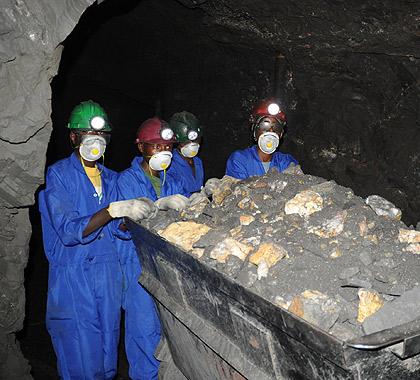DAR ES SALAAM – African countries continue to be the leading mineral exporters but have little to show for the continent’s vast resources, with the industry condemned to mainly extractive and unprocessed mineral exports.


DAR ES SALAAM – African countries continue to be the leading mineral exporters but have little to show for the continent’s vast resources, with the industry condemned to mainly extractive and unprocessed mineral exports. It is against this background that delegates from 14 countries in the region convene in Dar es Salaam, Tanzania to discuss how the continent’s abundant mineral resources can be used to spur broad-based development and economic structural transformation on the continent. Improving governance and management systems anchored on strong and capable institutions are some of the key factors to be addressed this challenge and harness Africa’s mineral endowments for growth and development. The Sub-regional Office for Eastern Africa (SRO-EA) of Economic Commission for Africa (ECA), jointly with the Tanzania government, has organised the 16th meeting of the Inter-governmental Committee of Experts (ICE), under the theme, "Harnessing the Africa Peer Review Mechanism Potential to Advance Mineral Resources Governance in Africa.” The meeting will take place from 13 to 17 February 2012. According to Antonio Pedro, the Director SRO-EA, the meeting will draw measures on how to better manage the mining sector to enhance economic development. "Increased transparency in the management of mineral sector, better social compacts and participation of stakeholders in decision making are prerequisites to enhancing the contribution of the extractive industry to the socio-economic development of the sub-region,” Pedro said ahead of the opening. Over the past decade, there have been many initiatives and mechanisms to strengthen governance of mineral resources. But most of them are externally designed and have had mixed results. "The African Peer Review Mechanism (APRM), an Africa owned initiative, has the potential to be used to advance the governance of mineral resources in Africa”, added Pedro. He further indicated that the ongoing revision of APRM questionnaire for country reviews, with the inclusion of an extractive industry specific questionnaire, offered an opportunity to use the APRM framework to advance good governance in the mining sector. Pedro mentioned that the Africa Mining Vision (adopted by the African Union Heads of State and Government in February 2009) would be a core reference document for discussions at ICE. The vision advocates for transparent, equitable and optimal exploitation of mineral resources to support broad-based sustainable growth and socioeconomic development. The meeting will bring together experts and decision-makers from 14 countries, including the newly-born nation of Southern Sudan. "Our countries are looking forward to discuss this significant theme and come up with clear resolutions that will help boost our nations to middle income economies,” stated Richard Kabonero, Uganda’s High Commissioner to Rwanda. "For Uganda, the theme is relevant and opportune given the recent discovery of oil in our country,” he added.


